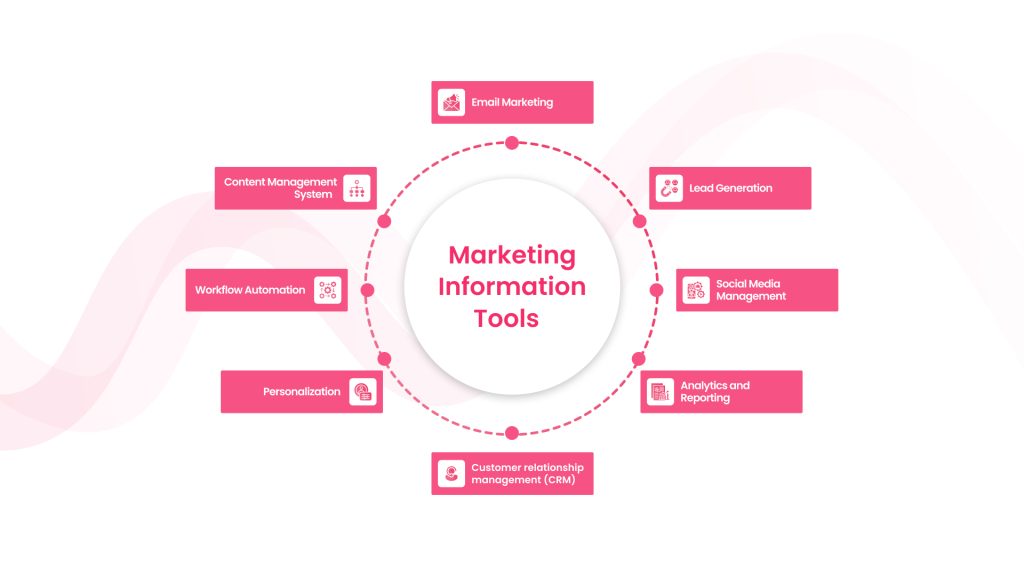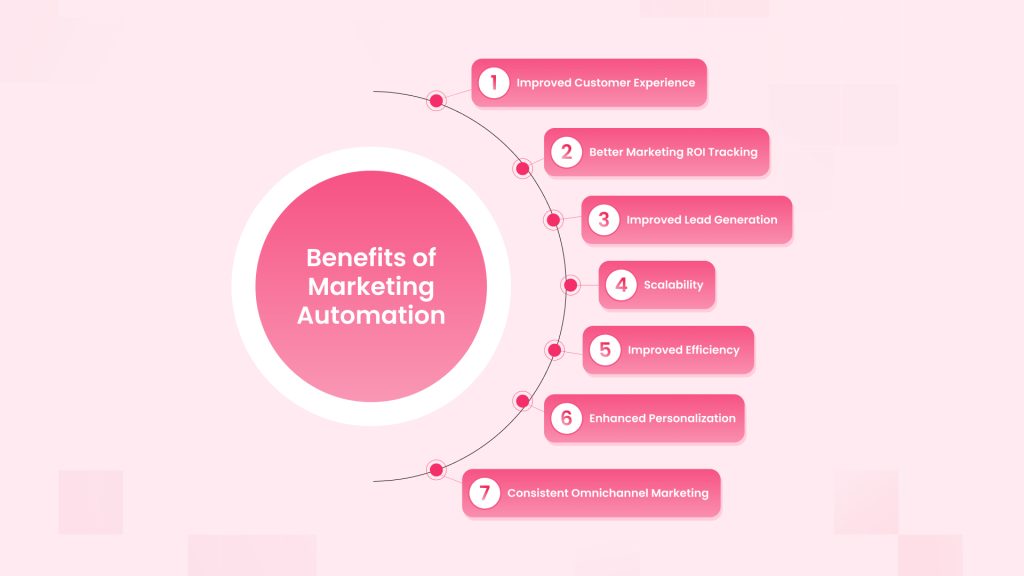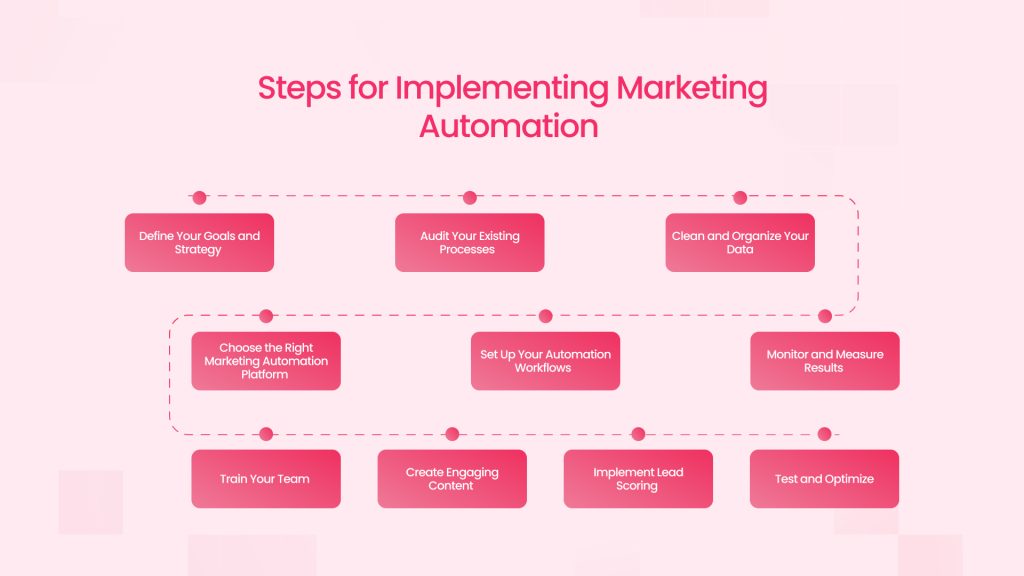
It refers to the software and technologies that are designed for marketing teams to automate and streamline their operations. With the help of this software, repetitive tasks such as email marketing, social media posting, and even ad campaigns can be automated easily to improve efficiency and provide a personalized experience to the customer. It allows its users to manage every aspect of every campaign from one place.
Nowadays, when businesses are seeking new ways to streamline their operations to drive growth, marketing automation tools have become a perfect solution.
Understanding Marketing Automation
Marketing automation refers to software platforms and technologies that are designed to market more effectively across multiple channels online, including email, social media, websites, etc., and automate repeat tasks. So, marketing automation is actually not just about eliminating human involvement from your marketing processes but rather about improving customer experience, enhancing marketing efficiency, and driving more conversions and revenue.
At its core, marketing automation enables companies to take care of prospects with highly personalized and useful content that helps transform a potential customer into a customer and later transforms that customer into a loyal customer. This kind of marketing automation usually produces significant revenue for any company and yields a fabulous return on the investment required.
Types of Marketing Automation Software
Marketing automation is not just one single tool; rather, it is a combination of different tools that work together in order to create a perfect marketing strategy for your business. Here is a list of different types of software that work together to automate marketing:

Email marketing: Automated email marketing campaigns that send targeted messages based on user behaviour, preferences, or specific triggers.
Customer relationship management (CRM): Integrating with CRM systems allows you to track customer interactions and provide a 360-degree view of each customer.
Content management: Creating, organizing, and publishing marketing content across all channels.
Lead generation: Features that capture and qualify leads, for example, through forms and landing pages, among many other interactive elements on your site.
Workflow automation: This feature automates repetitive marketing tasks and processes.
Social Media Management: Creating, scheduling, and publishing content on social media channels, monitoring engagement, and measuring sentiment.
Analytics and Reporting: These are the tools through which the performance of marketing campaigns is tracked, giving indications of how best to optimize.
Personalization: The alignment of capabilities in order to deliver personalized content and experiences based on user data and behavior.
Want to increase your sales? Here are a few tips on how you can do it using Email Marketing.
Benefits of Marketing Automation
Marketing automation can benefit businesses of any size in numerous ways. Here are some of the key benefits:

Improved Efficiency
Perhaps the greatest benefit that marketing automation accords to marketer is the significant level of effectiveness it supports. The example can be drawn through the act of sending emails, posting via social media, and campaigns where automation ensures the repetitive tasks are taken care of and the marketing team finds time and energy to focus on strategic and creative work. This not only conserves time but also minimizes the likelihood of human error, such as committing common mistakes in executing routine marketing activities.
Improved Lead Generation and Nurturing
Marketing automation platforms excel in lead capture. They can score leads automatically, depending on their activity related to your brand. This way, sales teams will work only on the most promising leads. Moreover, automated nurturing campaigns can help guide those leads through the sales funnel with personalized content and messaging, which increases a greater chance of conversion.
Enhanced Personalization
Customers today do expect more personalized experience. Marketing automation allows businesses to present their audience with content at the right time and in the most relevant and personalized way possible; it is influenced by the preferences, behaviors, and the stage of customer journey. That level of personalization could hugely boost the rate of customer satisfaction as well as engagement rates.
Better Marketing ROI Tracking
It makes tracking the ROI of marketing activities much easier: broad analytics and reporting features let you know which are working effectively and which need improvement. This all helps in data-driven decision-making and better optimization of marketing expenses.
Scalability
This means that you can scale your marketing efforts with potential growth in scale of employees and resources as your business grows. Whether you are sending emails to 100 or 100,000 subscribers, automation ensures that your campaigns are executed efficiently and effectively.
Improved Customer Experience
Marketing automation allows the right message to reach the right person at the right moment, definitely enhancing the customer experience. An automated series of welcome messages, personalized product recommendations, and on-time follow-ups combine to drive a positive and engaging customer journey.
Consistent Omnichannel Marketing
Implementing marketing automation tools will integrate different channels, enabling consistent marketing experiences across email, social media, websites, and beyond. An omnichannel approach has all of your customer touchpoints reinforcing your brand message in a consistent manner.
Here are a few tips to increase you Ecommerce business Sales.
Implementing Marketing Automation
While marketing automation’s benefits are obvious, the implementation itself requires a lot of planning and very careful execution. Here is a step-by-step guide to help you get started:

Define Your Goals and Strategy
You need to define beforehand what you want to achieve when working your way into marketing automation. Is it to get more leads? Enhance customer retention? Boost sales? Your goals will then be able to guide your strategy around automation and enable you to make informed choices about tools and tactics.
Audit Your Existing Processes
For instance, take a closer look at current marketing processes. Time-consuming or repetitive, prone to errors? Those are prime candidates for automation. Consider what’s working well and how automation might improve your processes.
Choose the Right Marketing Automation Platform
One should therefore choose a marketing automation platform from an array of options, which would be the best for their purposes, budget, and technical capability. Consider, among other things, ease of use, integration capabilities, scalability, and customer support. Some options include HubSpot, Marketo, Pardot, and Mailchimp.
Clean and Organize Your Data
Quality in one’s data is most likely to prove important for the success of your marketing automation efforts. Cleanse your customer database before choosing your platform. Remove all duplicates and outdated information. Arrange your data in such a manner that it will facilitate segmentation and personalization.
Set Up Your Automation Workflows
From a very simple standpoint, basic automation workflows can include welcome messages to new subscribers and reminders appearing as a result of abandonment in the cart. The more I get comfortable with the platform itself, the more complicated the workflows could be, covering the full customer journey from one end to the other.
Create Engaging Content
Great marketing automation is dependent on creating ongoing valuable content to connect with your audience. Have a content strategy aligned with the buyer personas and their stages in the customer journey. This includes blog posts, eBooks, webinars, case studies, and much more.
Implement Lead Scoring
Set up a lead scoring system that awards points based on the demographic and behaviour of the leads. This enables your sales to strategically invest efforts in the most promising ones.
Test and Optimize
Once launched, continuously test and tweak your automation workflows. A/B test different elements, subject lines, email content, call-to-action buttons, etc. Use the insights gained from your analytics to optimize your campaigns for better performance.
Train Your Team
The training given to your marketing and sales teams on the utilization of the marketing automation platform must be comprehensive, including technical and best practices for creating effective automated campaigns.
Monitor and Measure Results
Regularly review the performance of your marketing automation efforts. Look at key metrics such as open rates, click-through rates, conversion rates, and return on investment. Use these insights to continually improve your strategies and tactics.
Exploring Marketing Automation for Your Business?
Our Experts Can Help!
Best Practices for Marketing Automation
To fully utilize your marketing automation, you should consider the following best practices:
Start Small and Scale Up
Automating all the processes at once is not a good approach. Begin with a few of the most critical processes and gradually extend your scope of automation as you grow comfortable with the technology.
Focus on the Customer Journey
Design your workflow with the customer journey at its center. Each touchpoint must add value to the customer’s journey toward achieving his goals.
Personalize Whenever Possible
Use the data you have to create highly personalized experiences. Using names in emails is cool but also consider previous orders, browsing history or preferences.
Keep Your Database Clean
Clean and update your customer database from time to time to have an assurance of the accuracy of your automated campaigns. Inactive subscribers have to be removed and keep contact information updated for the sustainability of your efforts.
Respect Privacy and Preferences
Ensure the presence of opt-in and opt-out options within the marketing communications. Have respect for your customers by respecting their wishes and privacy as you ensure data protection regulations compliance.
Automation with Human Touch
While most of the tasks can be automated, let’s not forget that real success often comes through human interaction. Use automation to supplement, not to replace one-to-one personal interactions with your customers.
Continuously Educate Yourself and Your Team
Marketing automation technology is always in evolution. Learn new features and best practices through ongoing education and training.
Conclusion
Marketing automation is no longer a luxury; when marketing automation grew recently, it became a necessity for businesses in order for them to thrive in this digital age. Automation empowers business by streamlining regular repetitive tasks, offering personalized experiences providing valuable insights that help business engage with their audiences more effectively and efficiently.
Marketing automation is, however, not a plug-and-forget tool. Strategy, creativity, and optimization are needed to extract real benefits from it. Implementation based on best practices and keeping oneself updated with emerging trends will help businesses utilize the power of marketing automation for driving growth, customer satisfaction and gaining a competitive edge in the market.
Hence, as you begin your journey on marketing automation, keep in mind the ultimate goal is not only to automate the process but to make your communication with your customer more meaningful and valuable. With the right approach, marketing automation can build stronger relationships, drive more conversions and provide sustainable business growth in an increasingly digital world.
 Shopify
Shopify

















